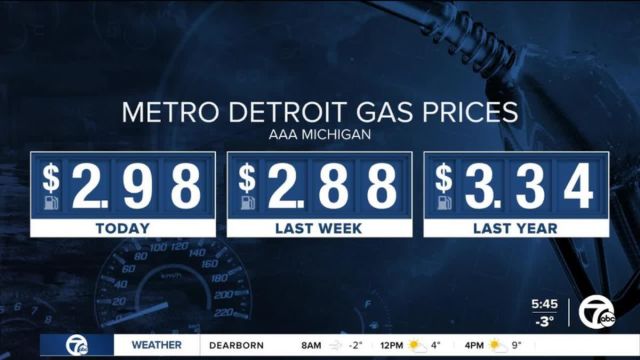Michigan has recently experienced a substantial increase in gas prices, with the average cost for regular unleaded fuel reaching $3.91 per gallon. This marks a new high for the year, surpassing the previous record set just a week earlier. The increase is not an isolated incident but a continuation of a trend observed over the past month, where prices have risen by 37 cents. The current state average is notably higher than the national average, which stands at $3.82 per gallon.
Several factors contribute to this surge in gas prices. One of the primary reasons is the complex interplay of supply and demand dynamics. Nationally, the demand for gas jumped significantly, from 8.84 million to 9.30 million barrels per day over the last week. Simultaneously, there was a decrease in the supply of domestic gasoline, dropping from 219.1 million to 216.4 million barrels. This imbalance between rising demand and tightening supply is a key driver of the higher prices.
Another contributing factor is the global oil market. Saudi Arabia, a major oil producer, announced a cut in oil production by 1 million barrels per day until September. This decision has implications for gas prices globally, including in the United States. Additionally, severe weather events, such as heavy storms and hurricanes, have impacted the capacity of domestic oil refineries. For instance, the ongoing heatwave in the Gulf Coast region forced oil refineries to slow down production, further straining the supply chain.
Michigan’s high gas prices can also be attributed to specific regional issues. A refinery fire in Ohio, which supplies fuel to Great Lakes states, significantly disrupted the distribution of gas. This incident was a primary factor in the initial spike in prices. Furthermore, concerns about oil supply have pushed up crude oil prices, which account for about 50 percent of the cost consumers see at the pump. The ripple effect of these regional disturbances is felt strongly in Michigan’s gas prices.
The situation is compounded by other disruptive events, such as the war in Ukraine and sanctions on Russia, a significant exporter of crude oil and refined petroleum. The sanctions have impacted global gas supplies, contributing to the price increase. Moreover, the U.S. refining capacity, which indicates how much crude any given refinery can process in 24 hours, has diminished since the start of the COVID-19 pandemic, adding another layer of complexity to the issue.
The impact of these high gas prices is far-reaching. Michigan residents are facing increased daily expenses, as the cost of commuting and transportation rises. This change in gas prices also influences consumer behavior, prompting some to alter their driving habits or consider more fuel-efficient transportation alternatives. Furthermore, higher transportation costs can lead to increased prices for goods and services, affecting the broader economy.
In summary, the recent surge in Michigan’s gas prices is a result of a confluence of factors, including global market dynamics, regional supply chain disruptions, and specific local issues. The situation is reflective of broader economic trends and has significant implications for Michigan residents and the wider economy. As the state grapples with these high prices, understanding the underlying causes is crucial for anticipating future trends and potential relief measures.



Leave a Reply